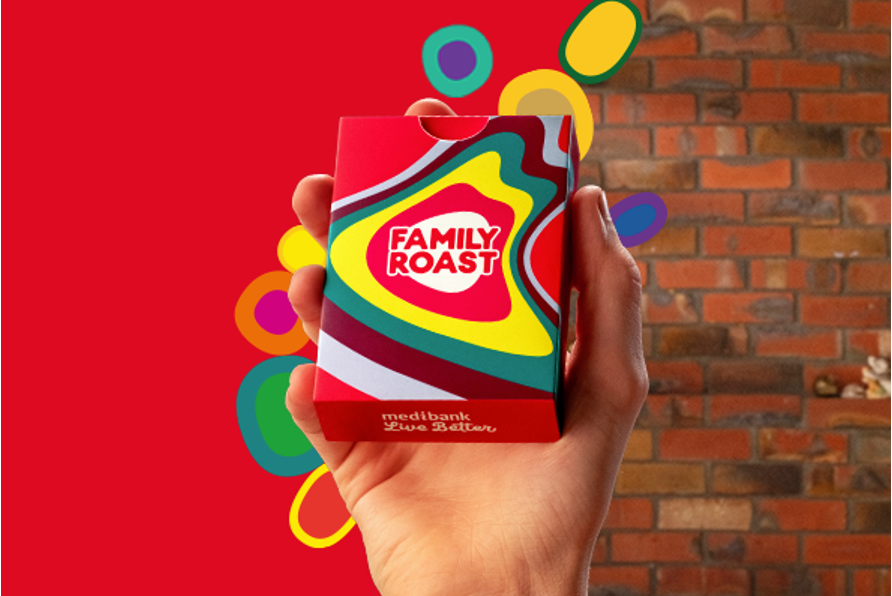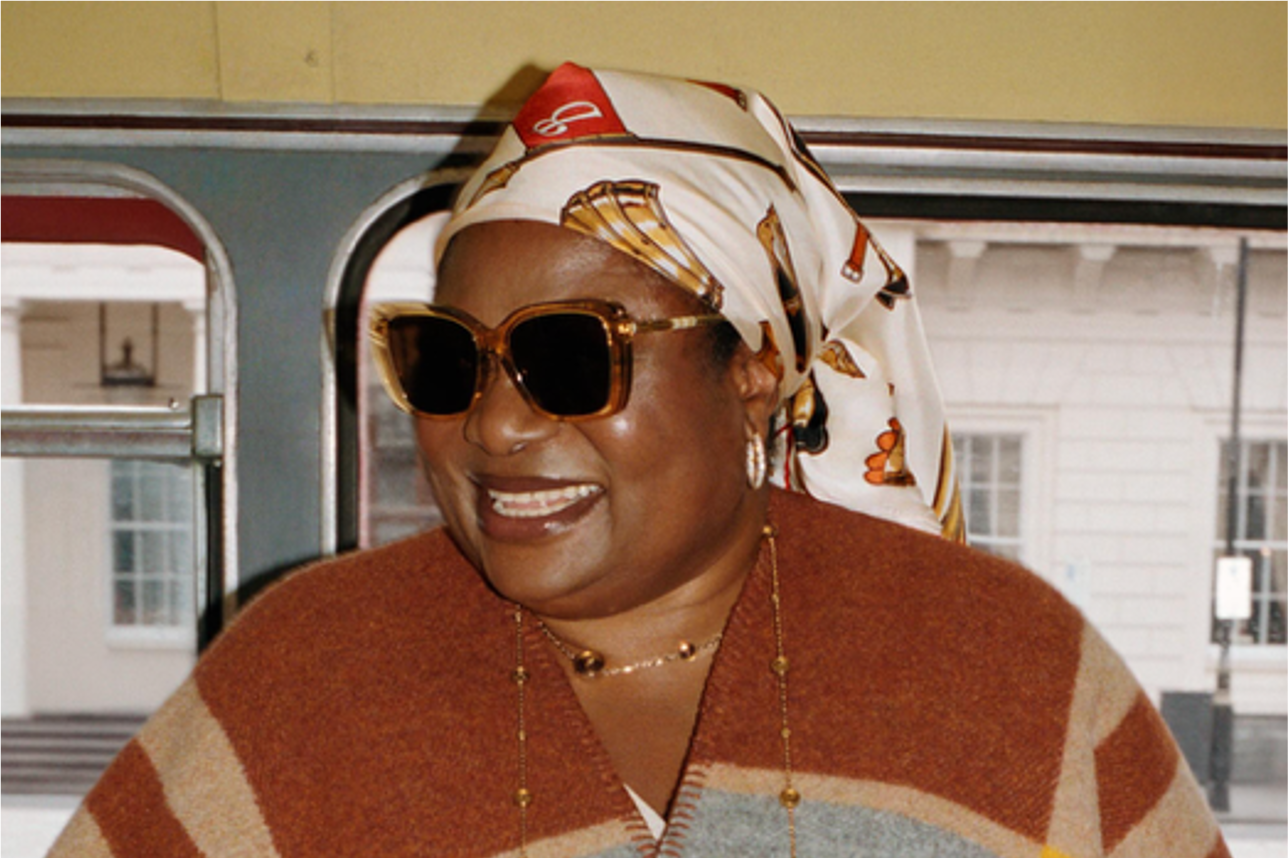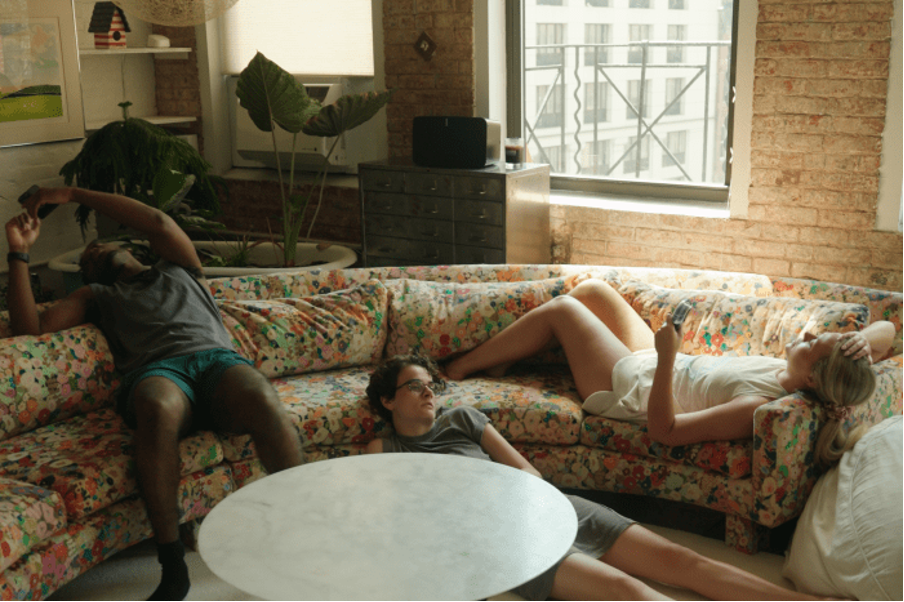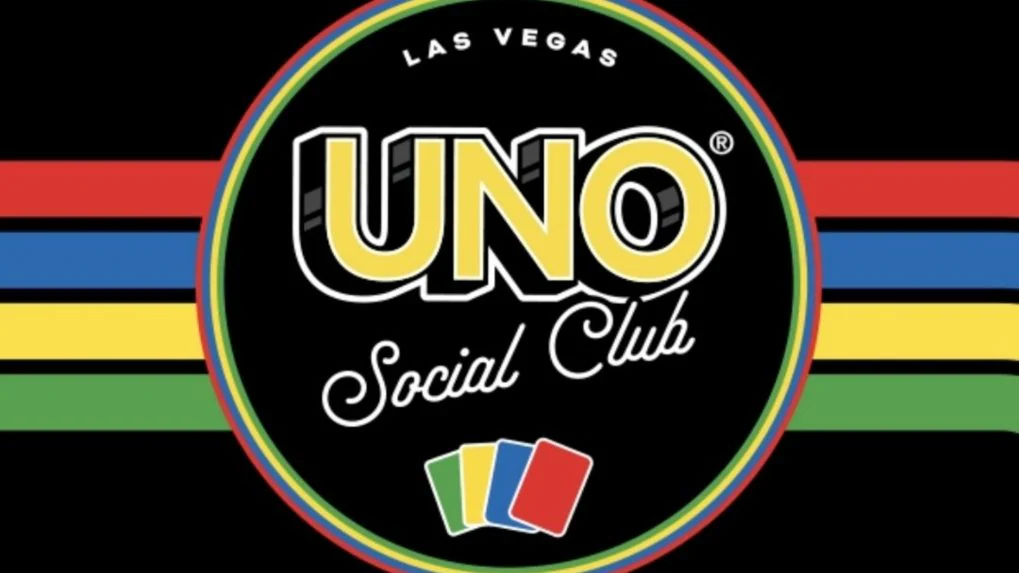In this week’s Our Take: Medibank revives Sharon Strzelecki for a family card game about mental health, Burberry taps TikTok’s “Bus Aunty” for London chaos chic, Bilt tries its hand at a TikTok sitcom to prove branded content never really went away, and Mattel bets that Gen Z would rather play UNO in a Vegas club than hit the bar.
Medibank Drops The Family Roast

Australian health insurer Medibank has resurrected one of the country’s most beloved comedy icons, Sharon Strzelecki of Kath & Kim fame, to lead a campaign about mental health.
Partnering with Colenso BBDO, Medibank launched The Medibank Family Roast – not a Sunday lunch with questionable gravy, but a card game designed with mental health experts to help families actually talk. The deck mixes light‑hearted prompts with deeper questions, encouraging households to laugh, debate, and maybe even cry in between snacks.
Fronting the campaign is Sharon herself, joined for the first time ever by her fictional children, Tim and Pam. Together, they navigate the awkward‑but‑endearing chaos of family dynamics while playing the game, proving that humour can be the ultimate icebreaker in times when tougher conversations might need to be had.
Medibank worked hand‑in‑hand with Magda Szubanski to imagine Sharon’s present‑day life, complete with the kids we never knew existed. The result is a perfect cocktail of nostalgia, comedy and wellbeing advocacy, delivered with the same charm that made Sharon iconic in the first place.
The campaign is a welcome refresher in a media landscape filled with slick, polished wellness messaging. Medibank has chosen a path that’s funny, messy, and human.
Watch out for the bus, Aunty!

If you’ve scrolled through TikTok lately, chances are you’ve seen Aunty Bemi on your FYP. Big smile, looking fab, and standing WAY TOO CLOSE to a passing double‑decker bus (careful, Auntie!).
Now, TikTok’s beloved “Bus Aunty” is in Burberry’s latest campaign, “Back to the City”. The campaign celebrates the spirit of London: its iconic landmarks, its unmistakable red double‑decker buses, and the personalities that bring life to the city, like Aunty Bemi herself.
Bemi Orojuogon, affectionately known as Aunty Bemi or Bus Aunty, has millions of views on her profile, with her light‑hearted, slightly nerve‑wracking videos by the roadside. Her fans adore her infectious energy, and it’s that chaotic charm colliding with Burberry’s polished heritage that makes the pairing so unexpected – and so brilliant!
This partnership shows you how brands that are tuned to social media can spot real cultural moments and icons. Aunty Bemi’s content is charming, playful, TikTok native and totally London… but please, mind the bus, Aunty!
My Sitcom is marketing to me!

Bilt, the US-based consumer fintech that lets you earn points on rent (finally, some justice for renters), has decided to pivot into sitcoms. Their new scripted series, Roomies, follows a Midwestern woman trying to survive in New York City. On the surface, it’s pure Friends territory. But look closer, and it’s a marketing strategy that prioritises binge-worthy content.
Instead of interrupting your feed with ads, Roomies keeps audiences hooked with plotlines and punchlines, slipping Bilt’s services in through the side door.
What’s smart here is how Bilt is leaning into a growing trend: driving engagement by taking braver swings with episodic content on TikTok and Instagram.
The lesson isn’t that brands need to entertain – that’s been true since soap companies literally gave us soap operas. What’s new is how TikTok sitcoms bury the brand deeper in the story. The plot rolls on for dozens of clips, characters live in your feed, and the product drifts in sideways rather than centre-stage. It’s not storytelling instead of selling – it’s storytelling stretched into the kind of bingeable drip-feed that today’s platforms reward.
In other words, the future of marketing looks less Mad Men, more Gen-Z doomscrolling ’til 2 a.m. But with extra brands.
UNO BEtS ON PLAY

Mattel is giving its most iconic card game a nightlife glow-up. This summer, the Uno Social Club opened at Las Vegas’ Palms Casino Resort, transforming a luxury suite into a full-blown playground with card dealers, a bowling alley, bold décor, and new twists on the classic game. The brand stunt is a signal on how Gen Z’s social habits are rewriting the rulebook for entertainment.
A recent Mintel study shows younger audiences are swapping pints for play, favouring competitive group experiences like gaming over traditional pub culture. That shift is powering rapid growth in the tabletop market, expected to rocket from $19.5bn to $34.1bn by 2030. Naturally, brands are following. From Hasbro’s Monopoly Lifesize in London to Mattel’s Uno Social Club, live gaming experiences are becoming the next frontier of culture-driven brand engagement.
For Mattel, the move is smart positioning. “We want to reimagine what game night can be,” says Ray Adler, Mattel’s Global Head of Games. By dropping into nightlife venues with tournament play, themed cocktails, and photo-worthy moments, Uno taps directly into Gen Z’s appetite for shared experiences that feel both social and Instagram-ready.
With expansion planned across major US cities, the Social Club format is set to blur the line between gaming, nightlife, and branded entertainment.